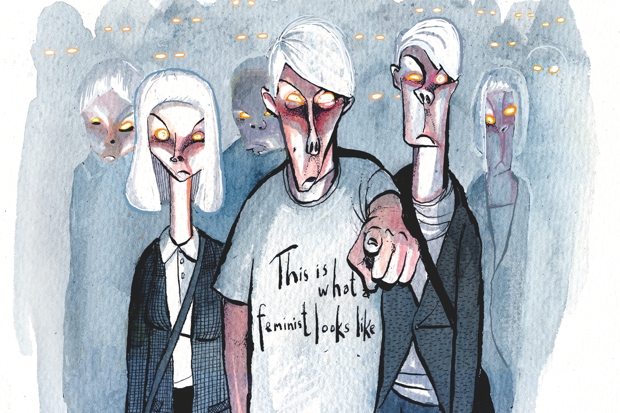The government’s proposal to overhaul and tighten betting laws, ostensibly to target problem gamblers, has understandably raised concerns about government interference and nanny-state overreach. Yet viewed from a wider perspective, we should welcome these initiatives and for the precedent they could set: they could be the final recognition that young adults do not reach maturity until the age of 25.
As part of its gambling curbs the government will place ‘enhanced’ checks on the finances of under-25s, amid concerns that they’re less able to ‘regulate’ their impulses and make rational decisions. For example, the under-25s will have stakes limited to a maximum of between £2 and £4 for online slot machines.
Ministers believe that young men between and 18 and 24 are especially at risk and are less able to manage their money, are more prone to social pressure and more inclined to take ‘riskier’ behaviour. They conclude that under-25s in general ‘may still be developing capacity to regulate impulses and make rational decisions.’
Such measures reflect much that is already understood and accepted among sociologists, neuroscientists and car insurance companies. Firstly, that young men are the most reckless, risk-taking demographic in society, and should be treated accordingly. And secondly, and more broadly, that adults only reach maturity in earnest at around the age of 25, when their prefrontal cortex, the part of the brain that governs social behaviour, is fully developed. The under-25s are more likely to behave immaturely and behave irresponsibly because they literally are more immature.
In recent years it has been an axiom of progressive politics that we should listen to the voice of youth: an assumption that has underpinned the drive to lower the age in which one can vote in elections – down to 16 in Scotland now – and more recent legislation by which aged a teenager is deemed by law mature enough to change their gender.
Even in Scotland, the country at the vanguard of empowering teenagers, there is simultaneously, and inconsistently, the admission that teenagers shouldn’t be treated as grown-ups. While Scotland’s current gender bill seeks to lower the age someone can change his or her gender from 18 to 16, in January last year a new sentencing guideline was put in place in the country when sentencing under-25s, making rehabilitation rather than punishment a primary consideration. This followed a recommendation by the Scottish Sentencing Council, based on scientific evidence, that ‘the brain’s continued growth, until as late as 25-30 years of age, and the resulting cognitive immaturity [should] be considered during judicial processes involving adolescents and young people.’
There is much scientific consensus on this matter, certainly on the teenage brain, but also on that of early twenty-somethings. The mature adult brain thinks with the prefrontal cortex, its part that governs good judgement, controls impulses, thinks in the abstract, weighs moral considerations and assesses long-term consequences. The teenage brain chiefly processes information through the amygdala, which governs emotions. In short, teenagers are better at feeling than reasoning.
And adolescence stretches beyond teenage years, as Richard Dawkins and the psychologist R Elisabeth Cornwell explained in the Guardian some years back, when the subject of lowering the voting age reared its habitual head. They detailed how neuroscientists such as Jay Geidd have shown that beginning with puberty the brain undergoes major reconstruction which continues until 20 and beyond, especially in the prefrontal cortex. Dawkins and Cornwell concluded:
Never mind the vote. Should people whose brains are still unfinished and in turmoil be making life-changing decisions for themselves: Which A-levels to take? Which university to apply to? 16-year-old brains might be scarcely better equipped to make a sensible judgment – about their own or the country’s future – than six-year-old brains are equipped to read War and Peace.
Scientifically speaking, the matter of the immaturity of the teenage brain is fairly settled. We should thus double down on attempts to lower the threshold of adulthood.
But the government’s latest initiative raises a more radical prospect, one also based on empirical findings, that we should be more circumspect in treating young adults as if they, too, were proper grown-ups.
Accusations of the nanny state might be correct. We shouldn’t be treated like children. But neither should all of us be treated like adults.






Comments